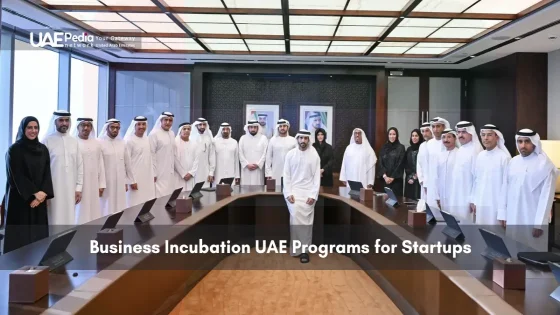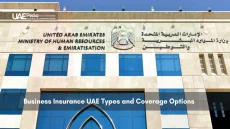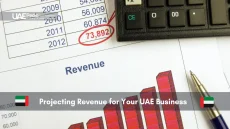How does a nation transform into a global tech hub within decades? The answer lies in a dynamic blueprint that merges cutting-edge systems with cultural priorities. As of 2025, over 97% of UAE public services are now digital—a leap powered by strategic frameworks designed for security, efficiency, and adaptability.
This approach isn’t just about flashy tools. It’s rooted in creating clear pathways for businesses and institutions to thrive. By prioritizing quality data and interconnected platforms, leadership has redefined how decisions get made—swiftly, transparently, and with citizens’ needs at the core.
That’s the reality shaped by evolving strategies focused on compliance without stifling creativity. From cloud infrastructure to AI-driven analytics, the emphasis remains on balancing innovation with responsibility.
Key takeaways:
- A forward-thinking framework enables rapid digital growth while maintaining strict compliance standards.
- Data quality and accessibility drive smarter public and private sector collaboration.
- Continuous innovation keeps systems agile in fast-changing global landscapes.
UAE Digital Governance and the Path to a Smart Nation
From paper-based processes to predictive, AI-powered platforms, the journey of public services reflects a nation’s leap into the future. Twenty years ago, visiting offices for permits or payments was routine. Today, 97% of transactions happen online—a shift powered by bold strategies like the UAE Digital Government Strategy 2025. This blueprint prioritizes “Digital by Design” systems that anticipate needs rather than react to them.
From Manual Systems to AI-Driven Public Services
Early digital efforts focused on moving services online. Breakthroughs came with unified platforms like SmartPass, offering unified access to more than 50 government services with one login. Mobile apps such as Dubai Now aggregates services like parking, utility payments, and healthcare bookings to healthcare bookings. These tools didn’t just digitize old processes—they reimagined them.
Pillars Shaping the UAE’s Digital Public Services
Three pillars guide current development:
- Inclusivity: Designing for elderly users and rural communities
- Resilience: Cloud backups ensure services survive crises
- Anticipation: Predictive analytics address issues before they arise
The UAE’s cloud infrastructure supports over 5,000 virtual servers via FedNet, with 46 government entities using cloud and 35 utilizing backup services to maintain resilience.Ref.: “TDRA Releases the Digital Enablers Report 2023″ (2023). Telecommunications and Digital Government Regulatory Authority.” [!]
A recent policy requires all new public projects to include accessibility features—a win for disability advocates. Another initiative uses blockchain to verify academic credentials instantly. These steps show how strategic alignment turns ambitions into everyday realities.
| Aspect | Traditional Approach | Digital Approach |
|---|---|---|
| Service Access | In-person visits | 24/7 mobile apps |
| Data Management | Paper archives | AI-driven analytics |
| Public Engagement | Notice boards | Real-time feedback loops |
UAE AI Legislation and Regulatory Frameworks
Navigating the rules shaping tomorrow’s innovations feels like solving a puzzle where every piece connects opportunity with accountability. The framework here blends federal mandates with specialized free zone policies—think of it as a layered safety net designed to foster growth while guarding public trust.
Federal and Free Zone Regulatory Frameworks
Mainland policies set broad standards, like Federal Decree Law No. 25, which mandates ethical AI development. Free zones—such as Dubai International Financial Centre (DIFC)—operate like innovation sandboxes. They tailor rules to attract niche investments, offering faster approvals for blockchain projects or drone delivery trials.
Take the 2024 AI Charter: it requires risk assessments for high-impact applications nationwide. But in Abu Dhabi Global Market (ADGM), startups enjoy tax incentives if their algorithms meet transparency benchmarks. This dual approach balances consistency with flexibility—a win for both regulators and pioneers.
“Our goal isn’t to restrict imagination but to ensure it serves humanity first.”
Key AI and Advanced Technology Regulations
Three pillars define current policy:
- Ethical Guardrails: Bias audits for hiring algorithms
- Data Sovereignty: Cloud servers must host sensitive info locally
- Failure Protocols: Mandatory backup systems for critical AI-driven infrastructure
These regulations aren’t just checklists—they’re reshaping markets. Healthcare firms now compete to certify their diagnostic tools under the new governance models, while fintechs in DIFC leverage lighter-touch rules to test predictive loan models. The result? A surge in sector-specific investments, from smart logistics to emotion-sensing retail tech.
Embracing Digital Transformation and Innovation in the Public Sector
Renewing a passport can now take less time than making your morning coffee—that’s the pace set by public sector innovators. Take the ‘Once-Only Policy, which slashes paperwork by reusing citizen data across departments. No more submitting birth certificates for school enrollments or visa renewals. It eliminates redundancy by securely reusing verified data you’ve ever shared.
But speed isn’t everything. Early adopters faced hurdles—legacy systems that couldn’t “talk” to new platforms, or staff hesitant to swap filing cabinets for cloud dashboards. One solution? Regulatory sandboxes. These testing zones let agencies pilot AI chatbots or blockchain voting systems without overhauling entire networks overnight. Dubai’s smart courts, for example, cut case resolution times by 40% using these trial runs.
Robust infrastructure acts as the backbone. High-speed fiber-optic infrastructure and secure government data lakes ensure services don’t stutter during peak demand. During recent global events, cloud-based health platforms handled 500% more telemedicine requests without crashing. “The infrastructure was built proactively to manage peak digital demand,” notes a government tech lead.
Yet challenges linger. Balancing convenience with privacy remains tricky—like designing facial recognition for airport security without creeping into surveillance overreach. And while 85% of citizens now prefer app-based services, rural areas still need offline access points. Innovation thrives when solutions stretch to meet every need, not just the obvious ones.
Government Digital Strategy: Dimensions, Priorities, and Best Practices
Picture a world where your phone predicts your needs before you ask—like magic, but powered by smart design. That’s the vision driving modern public service frameworks. Eight core dimensions shape this approach, from accessibility for all to systems that bounce back stronger after disruptions.
Inclusive, Resilient, and Data-Driven Approaches
Ever tried using an app that ignores screen readers? Not here. Teams now build tools with diverse users in mind—think voice commands for the visually impaired or offline kiosks in remote villages. Cybersecurity isn’t an afterthought either. Real-time threat monitoring guards sensitive data while letting services flow smoothly.
Take the UAE PASS initiative. This digital ID lets residents access 6,000+ services with one secure login. Behind the scenes, layered encryption and regular audits keep personal info safe. It’s convenience wrapped in ironclad protection.
The national digital identity platform UAE Pass has surpassed 11 million registered users and integrates with over 5,000 services across government and private sectors.Ref.: “How to access 5,000+ government and private services with UAE Pass” (2025). Times of India.” [!]
Digital by Design and Proactive Service Delivery
Why wait for requests when algorithms can spot trends? Predictive systems now alert farmers about soil changes or remind drivers to renew licenses. These aren’t sci-fi scenarios—they’re today’s standards. Training programs help staff shift from reactive to anticipatory mindsets.
| Service Type | Traditional Model | Proactive Model |
|---|---|---|
| License Renewals | Manual reminders via mail | Auto-generated alerts based on expiry dates |
| Healthcare | Reactive appointments | AI-driven wellness check suggestions |
| Infrastructure | Post-failure repairs | Sensors predicting maintenance needs |
Best practices? Start small. Pilot projects in free zones test ideas without risking system-wide crashes. Then scale what works. Regular feedback loops ensure policies evolve alongside citizen needs—because the future belongs to those who listen before they leap.
Cybersecurity, Data Privacy, and Cloud Resilience in UAE Governance
Sensitive data is protected through multi-layered encryption and monitoring protocols, protected by layers of digital guardians. As public services shift online, privacy becomes non-negotiable. Dubai’s Cyber Index now grades agencies on their defense capabilities, pushing teams to treat security like oxygen: invisible but essential.
Building Fortresses in the Sky
Cloud infrastructure isn’t just storage—it’s a battlefield. Local strategies mandate real-time monitoring tools that spot threats faster than a desert hawk. Encryption wraps data like a protective shroud during processing, while AI patrols virtual corridors 24/7. One innovation? Self-healing cybersecurity protocols that patch vulnerabilities before hackers even knock.
Here’s the twist: robust security fuels public trust. When residents know their health records or property deeds stay sealed, they engage more freely with digital services. Recent upgrades to Dubai’s payment gateways cut fraud attempts by 62%—proof that ironclad systems boost participation.
Collaboration makes this possible. Public-private partnerships pool expertise, like when telecom giants helped design the nation’s first cyber-response playbook. Regular drills simulate attacks, turning theoretical plans into muscle memory for IT teams.
Best practices? Start with zero-trust frameworks—verify every access request, even from known users. Automate compliance checks to avoid human slips. And always assume breaches will happen—so backup plans kick in before panic does. Because in the cloud era, resilience isn’t optional—it’s the price of progress.
Challenges and Opportunities in UAE Work Technology Governance
Walking a tightrope between innovation and regulation isn’t for the faint-hearted—but it’s where progress thrives. Legacy systems linger like stubborn ghosts in some corners, slowing adoption of cloud tools or AI analytics. One agency spent months untangling decades-old databases before launching its smart permit portal. Yet these hurdles spark creative fixes.
Look closer, and opportunities shimmer like desert mirages turned real. Take AI pilot programs that predict traffic bottlenecks or energy waste—projects once deemed too risky now get fast-tracked funding. Blockchain land registries? They’re slashing property disputes by 30% in trial zones. The secret? Frameworks that let businesses experiment without toppling compliance castles.
Partnerships bridge gaps. A telecom giant recently teamed up with healthcare institutions to deploy IoT patient monitors across remote clinics. “Sandbox environments let us test-drive ideas before highway launches,” shares a tech officer. Government entities fuel this by hosting innovation hubs where startups and ministries co-design solutions.
Remember the previously delayed paperless initiative in 2022? By 2024, it processed 1.2 million documents monthly—proof that persistence pays. Challenges morph into stepping stones when strategy meets adaptability. The future lies in accelerating innovation with regulatory alignment.
Ensuring UAE work technology governance and Compliance Across Jurisdictions
This system balances national consistency with region-specific flexibility. While federal laws set the base flavor, free zones tweak rules to attract specific industries. This dual system lets entities choose environments matching their risk appetite and innovation goals.
“read more: UAE Work Technology Governance Framework“
Mainland vs. Free Zone Playbooks
Mainland regulations prioritize broad safety nets. For example, AI systems handling public data must undergo third-party audits annually. Free zones like DIFC operate differently—their private sector partners can test drone delivery algorithms with lighter reporting requirements if they meet transparency benchmarks. It’s like strict home kitchens versus experimental food trucks.
Here’s how it shakes out:
| Aspect | Mainland | Free Zones |
|---|---|---|
| Data Storage | Mandatory local servers | Hybrid cloud options |
| AI Testing | Pre-approval required | Sandbox environments |
| Compliance Timelines | 60-90 day reviews | Fast-track 14-day processes |
Emerging technologies reveal these contrasts best. In Abu Dhabi’s Hub71, blockchain projects skip layers of paperwork if they align with smart city goals. Meanwhile, Dubai’s fintech sandbox lets startups trial AI credit-scoring models—with guardrails—before nationwide rollout. These region-specific tweaks let the private sector sprint without tripping over red tape.
Collaboration fuels this balance. Banks in the DIFC recently partnered with regulators to design real-time transaction monitoring tools—a move later adopted by mainland entities. By letting each region prototype solutions, the system evolves faster while keeping core principles intact. After all, good governance isn’t about uniformity—it’s about harmony.
How Regulation and Innovation Intersect in UAE GovTech
Imagine building a bridge where both sides meet in the middle—that’s the dance between rules and breakthroughs in modern governance. Take the Dubai Future Foundation’s AI Retreat, where policymakers and tech CEOs co-design ethical guardrails for facial recognition tools. These gatherings aren’t just talk shops—they birth frameworks flexible enough for tomorrow’s inventions.
“read more: UAE Talent Management Strategies for Retention“
Public-Private Collaboration and Emerging Technologies
Predictive intelligence now fuels smarter regulations. When cyber threats spike, joint task forces from private security companies and national agencies deploy real-time defense protocols. One initiative uses blockchain to track supply chains—reducing fraud while meeting strict data laws. Think of it as a co-created playbook where everyone wins.
Business ecosystems thrive when experimentation has guardrails. A recent sandbox project let fintech companies test AI loan algorithms under controlled conditions. The result? Faster approvals for borrowers and risk models that adapt to market shifts. “We’re not just writing rules—we’re coding them into the system,” notes a tech lead from the AI Retreat.
| Aspect | Traditional Model | Collaborative Model |
|---|---|---|
| Regulatory Updates | Annual revisions | Real-time adjustments via AI-powered insights |
| Risk Management | Siloed assessments | Cross-sector intelligence sharing |
| Compliance Timelines | 6-12 month cycles | Continuous monitoring with automated alerts |
These partnerships don’t just solve today’s puzzles—they anticipate tomorrow’s. When drone delivery companies needed clear airspace rules, aviation authorities worked with engineers to map safe corridors using traffic prediction tools. It’s proof that when brains from different worlds collide, progress isn’t just faster—it’s smarter.
Future Directions for UAE GovTech and Digital Governance
What does tomorrow look like when today’s blueprints become reality? The journey ahead blends global ambitions with homegrown ingenuity—think AI-driven clinics predicting outbreaks before they spread, or smart ports rerouting cargo ships using real-time climate data. These aren’t distant dreams but active projects shaping how communities thrive.
Local strategies now mirror worldwide shifts toward ethical tech ecosystems. Take healthcare: predictive diagnostics and telemedicine networks are redefining patient care while meeting strict compliance standards—key goals in national plans. Similar waves ripple through logistics, energy, and education sectors, each building bridges between innovation and public trust.
Innovation hubs act as launchpads, connecting startups with policymakers to turn bold ideas into scalable solutions. From blockchain land registries to AI-powered healthcare triage systems, these collaborative spaces prove progress thrives when diverse minds unite.
The road ahead demands agility. As digital rules evolve alongside breakthroughs in genomics, clean energy, and other critical sectors, frameworks must balance stability with adaptability. Our shared goal? Creating systems that keep pace with a world where change isn’t coming—it’s already here.
Federal authorities like the UAE Cybersecurity Council enforce strict standards for encryption, access controls, and threat monitoring. Regular audits and partnerships with firms like G42 Cloud ensure hybrid systems meet evolving global benchmarks while enabling seamless digital services.
Financial hubs like DIFC and ADGM operate under independent data protection laws aligned with GDPR, while mainland entities follow federal decrees. Free zones often pilot emerging tech frameworks—think AI ethics guidelines or blockchain sandboxes—before nationwide adoption.
Healthcare, transport, and energy see rapid advancements through initiatives like Dubai’s AI Ethics Board and Abu Dhabi’s Hub71 startup ecosystem. Joint ventures between institutions like Mohamed Bin Zayed University of AI and private firms drive R&D in machine learning and smart city solutions.
Agencies now build proactive platforms using predictive analytics and IoT integration—like the Smart Dubai 2025 strategy. Services automatically adjust based on real-time data, from traffic management to healthcare resource allocation, minimizing manual processes.
Regulations require sensitive citizen data to reside on UAE-based servers unless exempted. This balances global cloud adoption with sovereignty needs, as seen in Dubai’s government entity partnerships with Khazna Data Centers and Microsoft’s local Azure regions.
Absolutely. The Dubai AI Principles outline sector-tailored rules—healthcare AI must undergo ethics reviews, while fintech algorithms in ADGM face explainability requirements. Cross-border data flows also trigger compliance checks under the UAE Data Law.



















